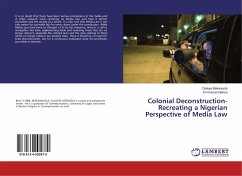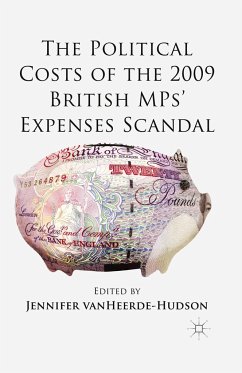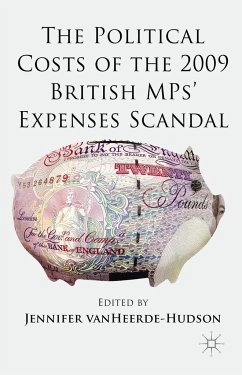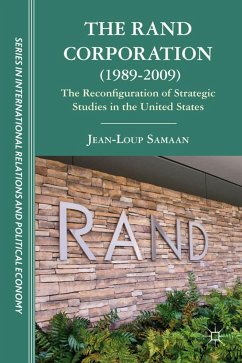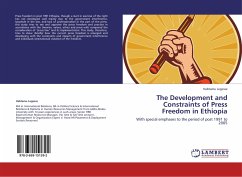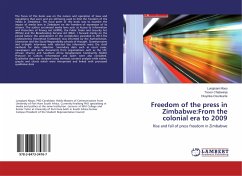
Freedom of the press in Zimbabwe:From the colonial era to 2009
Rise and fall of press freedom in Zimbabwe
Versandkostenfrei!
Versandfertig in 6-10 Tagen
36,99 €
inkl. MwSt.

PAYBACK Punkte
18 °P sammeln!
The focus of this book was on the nature and operation of laws and regulations that were and are still being used to limit the freedom of the media in Zimbabwe. The focal point of this book was to examine the impact of media laws in Zimbabwe on the freedom of expression of its citizens. The author scrutinised media laws such as Access to Information and Protection of Privacy Act (AIPPA), the Public Order and Security Act (POSA) and the Broadcasting Services Act (BSA). I focused mainly on the period before the amendment of the constitution ascended in 2013.The underpinning theoretical framework...
The focus of this book was on the nature and operation of laws and regulations that were and are still being used to limit the freedom of the media in Zimbabwe. The focal point of this book was to examine the impact of media laws in Zimbabwe on the freedom of expression of its citizens. The author scrutinised media laws such as Access to Information and Protection of Privacy Act (AIPPA), the Public Order and Security Act (POSA) and the Broadcasting Services Act (BSA). I focused mainly on the period before the amendment of the constitution ascended in 2013.The underpinning theoretical framework was informed by the Authoritarian, Libertarian and the Social Responsibility schools of thought. Questionnaires and in-depth interviews with selected key informants were the chief methods for data collection. Secondary data such as court cases, newspapers and some documents from organisations such as the UN, African Charter and Southern Africa Development Community (SADC) Protocol on Culture, Information and Sport were also consulted. Qualitative data was analysed using thematic content analysis while tables, graphs and charts which were interpreted and linked with processed qualitative data




